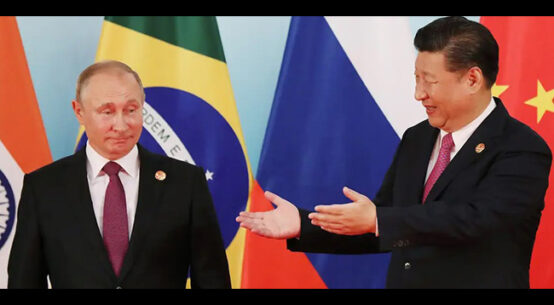
Talks aimed at curbing harmful subsidies for fisheries concluded in Geneva in the first multilateral trade agreement the World Trade Organization (WTO) has struck in almost a decade. The body’s Twelfth Ministerial Conference (MC12) was scheduled for June 12–15, but overtime negotiations didn’t conclude until early June 17.
It is the first time WTO members have ever concluded a deal “with environmental sustainability at its heart,” WTO director general Ngozi Okonjo-Iweala said in her closing speech.
The fisheries agreement is a global solution that “will help ensure ocean resources are used in a sustainable way that drives economic growth and development while maintaining a healthy ocean for the benefit of biodiversity, nature, and people,” Dona Bertarelli, special adviser for the blue economy with the U.N. Conference on Trade and Development, told Mongabay.
The new agreement bans government subsidies that support the fishing of already-overfished stocks and curbs those that contribute to illegal, unregulated and unreported (IUU) fishing.
But in the interest of reaching a deal, the WTO’s 164 member states put off dealing with certain subsidies where agreement proved elusive: those that contribute to building fleets with capacity to fish unsustainably and other forms of overfishing. Negotiators say they will re-open talks on those issues at the WTO’s next ministerial conference, possibly in late 2023.
“This is a historic step forward,” Claire Nouvian, founder of the Paris-based marine conservation group Bloom Association, said in a press release. “The text is flawed and imperfect but still marks a huge advancement.”
Pressure was high to reach an agreement. Fisheries subsidy talks, begun in 2001, had entered their twenty-second year without consensus, missing several deadlines along the way. Moreover, the WTO needed to prove its ability to achieve meaningful multilateral trade deals, having failed to strike any since 2013.
“By reaching an agreement they may have given themselves a life line,” Rashid Sumaila, an expert in fisheries economics at the University of British Columbia, Canada, told Mongabay. “In my opinion, a complete failure would have been a death nail on the WTO.”
At MC12, delayed two years by the COVID-19 pandemic, WTO members also reached agreements about food security, COVID-19 vaccine patents, WTO reform and e-commerce. But they failed to make a deal about agricultural issues.
“Nonsensical” fisheries subsidies
Many countries subsidize their fishing industries, giving out grants or tax exemptions that can artificially raise fishers’ profits by increasing their revenue or reducing their costs. Subsidies deemed “harmful,” especially those given for fuel and equipment, enable fishing in places it would otherwise be unprofitable to get to, thereby increasing fishing activity that otherwise wouldn’t happen at all. This can deplete fish stocks to unsustainable levels and degrade the marine environment, decimating the food security and livelihoods of local communities who depend on them.
Harmful subsidies run counter to biodiversity and climate change commitments made by many governments, conservationists note. Yet, since negotiations began two decades ago, governments have spent $400 billion on them, by one estimate. A third of the world’s stocks are now overfished and most of the remainder are fished to capacity, according to the U.N. Food and Agriculture Organization.
Governments spend around $35 billion annually on fishing subsidies, with $22 billion of that amount going toward harmful subsidies, according to a 2019 study that Sumaila co-authored. China, the E.U., U.S., South Korea and Japan are the biggest spenders.
“It’s like with the right hand we try to do the right things and with the left hand we pour money into doing the wrong things,“ Rémi Parmentier, an environmental policy adviser and head of the Varda Group who has followed the negotiations as a civil society observer and activist since they began in 2001, said. He termed the practice “nonsensical.”
In 2015, the WTO fish talks were charged with facilitating achievement of U.N. Sustainable Development Goal 14.6, now 530 days past its 2020 deadline. The goal targets three areas: curbing overcapacity and overfishing, banning subsidies that support IUU fishing and making sure no new harmful subsidies are introduced.
SDG 14.6 specifically requires, “recognizing that appropriate and effective special and differential treatment for developing and least developed countries should be an integral part of the World Trade Organization fisheries subsidies negotiation.”
Negotiators achieved consensus on measures related to two of the main areas targeted, with a two-year grace period for qualifying developing and least-developed nations. The agreement also mandates states disclose the subsidies they grant their fleets, in what the Bloom Association press release describes as “a major step forward.”
But they failed to conclude how to proceed equitably between more and less developed nations on curbing overcapacity and overfishing, opting to cut this aim out of the agreement for the time being. Sumaila described this as “a major weakness.”
Points of contention
Going into MC12, some civil society groups and ministers negotiating the deal felt the working draft would leave developing and least developed nations bearing the brunt of cuts to the livelihoods of their small-scale fisherfolk, while creating a loophole for richer countries to continue subsidizing the most harmful fishing activities of their more industrialized fleets.
The crux of the issue was that Article 5.1.1 of the draft agreement, dealing with overcapacity and overfishing, contained a carve-out for states that can afford it to continue to deploy the most harmful subsidies “…if the subsidizing Member demonstrates that measures are implemented to maintain the stock or stocks in the relevant fishery or fisheries at a biologically sustainable level.”
While this loophole disappeared from Article 5 in the final agreement, a similar one remains as part of Article 4, which deals with subsidies affecting stocks that are already overfished.
Enabling developed countries such as the E.U., Japan and U.S. to continue handing out harmful subsidies “will not achieve the goals of the SDGs,” Parid Ridwanuddin, coastal and marine campaign manager at Friends of the Earth Indonesia, told Mongabay. Neither, he said, does it accommodate the special and differential treatment for less-developed nations that SDG 14.6 mandates.
The WTO works by consensus, so any one of its 164 member states can thwart a deal. Such fractures between developed and less developed states came up in many aspects of the negotiations, and they came to a head at MC12 when India refused to support the draft agreement.
Nations that are “indiscriminately exploiting the fisheries resources in others’ exclusive economic zones and the High Seas should own the responsibility for the damage they have caused,” India’s commerce and industry minister, Piyush Goyal, said during one of the negotiation sessions in Geneva, where he reiterated India’s rejection of the draft agreement unless changes were made.
Developed states with commercial fleets and big subsidy programs have already been able to develop their fishing industry infrastructure and systems, benefitting historically from profits only possible through harmful subsidies. Developing and least-developed countries such as India, Sri Lanka and Indonesia said they should be able to develop their own industry infrastructure.
But many observers felt this position was obstructive to averting marine ecological collapse. “Every year lost in these shenanigans is a free pass for developing countries like China, that have industrial fleets, to continue plundering the ocean that will in turn cause further distress for the small and artisanal fishers in Asia,” Shailendra Yashwant, senior adviser for NGO Climate Action Network South Asia, said.
By day three of the conference, no one was budging and Okonjo-Iweala announced an implementation fund in an effort to alleviate the concerns of developing nations. India remained impervious, and by the fourth and last scheduled day of the conference it looked likely that not only would a consensus on fisheries subsidies not be reached by close of play, but that no agreement would be reached on any of the other big issues up for negotiation at MC12 either.
The conference was extended at the eleventh hour, in hopes that multilateral cooperation might win the day, proving the WTO’s worth. Ministers spent two sleepless nights in small-group “green room” negotiations, while their negotiating colleagues sweated it out on the heat-wave bitten shores of Lake Geneva until a partial deal was eventually struck in the small hours of this morning.
What’s next?
The negotiating group intends to try to preserve momentum by continuing to work toward agreement on the outstanding issues, including overcapacity and overfishing, in time to make recommendations at MC13. It is hoped these anticipated provisions, together with the ones agreed this week, will “achieve a comprehensive agreement on fisheries subsidies,” the agreement states.
But some observers say implementing such a deal, in the absence of fisheries performance data from many parts of the ocean, is going to be tough.
“In general, I think the real work has just begun,” Sumaila told Mongabay. “We all have to make sure that the agreement reached is implemented by our governments while we continue pushing to fix the weaknesses in the current agreement.”
(This article is republished from Mongabay under Creative Commons License)


